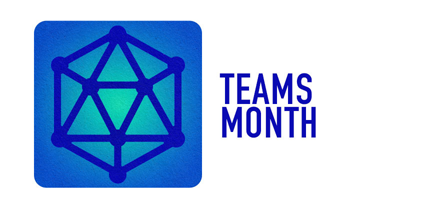 This July, Inman’s editorial theme is Teams — what it takes to build and join one, how to optimize your team for summer 2020, and even when to consider leaving one. And if you’re not already a subscriber to our Teams Beat email newsletter, sent every Thursday, sign up now.
This July, Inman’s editorial theme is Teams — what it takes to build and join one, how to optimize your team for summer 2020, and even when to consider leaving one. And if you’re not already a subscriber to our Teams Beat email newsletter, sent every Thursday, sign up now.
I don’t know about you, but every time I have a vacation (or right now, a staycation) or holiday weekend coming up, I get about an extra 20 percent done.
I bet, in the last day before a recent vacation, you worked out, meditated, worked on your novel, put in a nine-hour day at the office (three interviews, finished two projects, took the team out to lunch), went shopping for new workout gear, met your partner and some friends for dinner, spent another hour checking in with your team and answering emails, and read two chapters of The Surrender Experiment.
Why isn’t every day this purposeful and productive?! Well … it can be!
I like to live my life by the philosophy of working between vacations. Here’s how you can, too.
Start by actually planning vacations
Here’s the thing. Most people don’t even plan vacations. And why not? Usually for two main reasons: 1. They don’t think they’ll earn or save enough money to pay for a vacation or 2. they think they don’t have the time/can’t get away from XYZ responsibility at work or at home. Both of which are false, by the way.
If you don’t plan even one vacation for the year, it will be a self-fulfilling prophecy: You are telling yourself that you can’t earn or save enough money or that you don’t deserve to take time off (that’s a whole psychological discussion for another time). But you do deserve to take time off. In fact, you must in order to be the best version of you at home, at work and in your business.
Note: We are in an unprecedented time, and I understand that travel is not feasible for a lot of people right now for a variety of reasons. But vacations and time off does not mean you have to travel! It may be a different experience (masks in common areas at resorts or camping instead of flying to Cabo), but it’s still time off to rest and recharge that matters here.
You may have to shift your plans and expectations right now. For example, I had a Caribbean cruise planned for last week, but instead, I took the kids less than an hour from my house to a cottage on the lake for five days. We had a blast — swam, played, rested, recharged and connected with each other. That is what vacations are all about, regardless of the destination.
Spoiler: You don’t have to work 24/7 to be successful
Entrepreneurs and real estate agents, especially, are susceptible to falling into the trap of go, go, going. Actually, they are often told when they start off to get ready to survive on two hours of sleep a night, that their next vacation won’t be for at least another three years, and oh yeah, forget about holidays with the family.
I was told that too when I first started to build my business. But I wasn’t willing to accept that.
Don’t get me wrong, building a business and building the life of success and freedom that you want requires a lot of hard work and sacrifices. You just have to decide what your boundaries are and what sacrifices you are willing to make.
Sure, could I have put my head down and worked seven days a week to potentially build my businesses faster? Yup. But at what cost? Learning? My health? New experiences? My relationships? Having new experiences and new adventures and spending time with my family were things that I was not willing to give up. By factoring in long weekends and vacations (as well as putting boundaries around how much time you’re willing to spend working each day) it forces you to work through people and truly build a business, instead of relying solely on your own energy.
I choose to work between vacations, and you can, too.
Strategically plan your time off at the start of the year
Most thought leaders and business gurus will recommend you take a weeklong vacation every 90 days. And I think that is a great place to start. Studies have shown that you are more productive leading up to a vacation and 90 days is plenty of time to implement a new initiative, hit some big sales numbers or finish a project.
When you know at the beginning of the year that you’ve got four vacations planned, how would that change your level of output, focus and general attitude? Sure, we all want to be working for an organization that we don’t need a vacation from, but no matter how much you love your work, you still deserve to take time off. It will actually help your energy levels, focus and productivity in the long run.
Weeklong vacations are great. But I’m also a huge fan of the long weekend. And I’m not talking about a private jet whisking me away to a chalet in Aspen. I’m talking about going to a local inn on the lake or just going camping. It’s not about the extravagance of the trip, it’s about the experience.
More vacations = more productivity
By building in longer trips and mini-vacations frequently throughout the year, it forces me to be laser-focused on only what is most important in my organization and creates a sense of urgency to get shit done. I work in bursts during my day, so why wouldn’t my months be full of bursts of work, too?
Working between vacations means every day is packed and purposeful. It forces you to employ extreme time management techniques, to say no to anything that is not 100 percent mission-critical and to take action.
Bottom line? Taking more vacations equals more productivity, faster growth and extreme clarity.
But this isn’t just for you. As a leader, it’s your responsibility to keep a pulse on your team members and their energy. Make sure you’re aware of the last time someone had a day off — a real day off — to rest and recharge.
You have to catch burnout before it happens. You can’t be laser-focused all the time. Your mind and body need time to play, learn something new, get creative and explore before shifting back to a discipline and focus. The ebb and flow of focus is what makes life interesting and actually gets you to your goal faster.
So, take a vacation. Schedule a long weekend away from the office and your business. Shaking up your routine is important to gain clarity; to recharge, refresh, refocus; to be able to tackle problems from new angles; and to think about ideas from a fresh perspective.
You’re not going to solve all the challenges of your organization sitting behind your desk. Get laser-focused by giving yourself a break. And then when your break is over, get back after it.
Adam Hergenrother is the founder and CEO of Adam Hergenrother Companies













